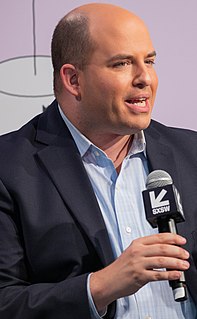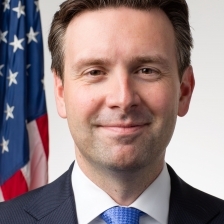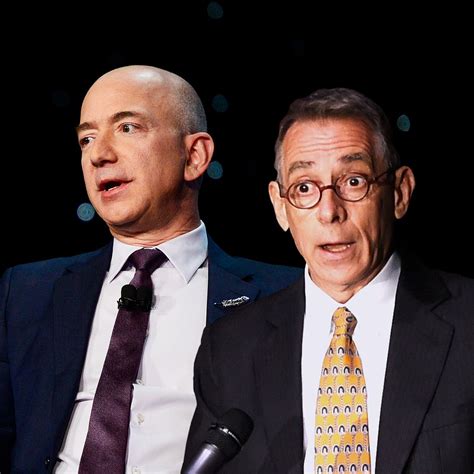A Quote by Matthew Yglesias
I'm trying to inform people, so I try to present them with accurate information.
Quote Topics
Related Quotes
If you share information widely, but you present that information in ways that fits your own view, you're actually still misrepresenting. So instead what you should do is figure out ways to build systems that allow people to experience and classify their information in ways that are meaningful for them.
Allowing short selling is allowing people to sell - instead of having to buy the stock and then sell it, which doesn't do much; allow them to sell it, and then buy it. In which case they can express that information and the idea is that you would get more accurate valuation of companies by letting people express both their positive information and their negative information through either long or short selling.
And say, finally, whether peace is best preserved by giving energy to the government or information to the people. This last is the most legitimate engine of government. Educate and inform the whole mass of people. Enable them to see that it is their interest to preserve peace and order, and they will preserve them. And it requires no very high degree of education to convince them of this. They are the only sure reliance for the preservation of our liberty.
In a democracy, if people don't have accurate information, how can they be active citizens? How can they be part of the debate? And if you are facing powerful forces on the right and in Trump administration who want to create an alternative reality that feeds into their objectives for our country, you more than ever need the press to cut through that, and to be as accurate as possible.
But there is more to a fine photograph than information. We are also seeking to present an image that arouses the curiosity of the viewer or that, best of all, provokes the viewer to think-to ask a question or simply to gaze in thoughtful wonder. We know that photographs inform people. We also know that photographs move people. The photograph that does both is the one we want to see and make. It is the kind of picture that makes you want to pick up your own camera again and go to work.
I don't want to fetishize the past. I want there to be a natural sequence coming out of a synthesis of the ideas and information that I gather together as a result of looking at things that are in the world. I'm trying to bring forward signs or signals based on what I see and my responses to these things. I'm trying to leave a trail that will be useful to other people in the future. It has to do with making something that contains a synthesis of the information, and then consequently to make one's deliberations visible, to allow other people to follow them. That's how I see my role.





































